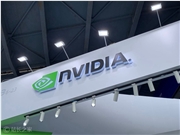Recently, AMD announced it would cut approximately 1,000 jobs, accounting for about 4% of its global workforce. The layoffs primarily affect sales and marketing positions in the gaming and consumer PC divisions, marking the chip giant's strong shift towards the artificial intelligence chip sector.
In the blue ocean market of AI chips, NVIDIA currently dominates with an 80% market share. Analysts predict that by 2028, the AI chip market size will reach $500 billion. AMD's resource restructuring aims to capture a larger share in this rapidly growing market.
As the world's second-largest GPU manufacturer, AMD has already demonstrated strong capabilities in the data center and AI accelerator fields. Its newly launched AI chip, the MI300X, has gained favor with tech giants like Meta and Microsoft, becoming an important alternative outside of NVIDIA systems. However, AMD's stock price has still fallen by 5% this year, while competitor NVIDIA has achieved a remarkable 200% increase in stock price due to its AI chip business, becoming the highest-valued publicly traded company in the world.

It is noteworthy that the gaming division, which once fueled AMD's growth, is expected to suffer a severe blow in 2024, with revenues potentially plummeting by nearly 59%. The continued weakness in consumer demand has forced AMD to readjust its business focus.
Regarding the layoffs, an AMD spokesperson stated: "To concentrate resources in the areas with the greatest growth potential, we have had to make some tough decisions. The company will treat affected employees with the utmost respect and provide them with transitional support."
Looking ahead, AMD plans to continue increasing its investment in the AI sector. CEO Lisa Su stated that there are significant growth opportunities in the data center, AI, and embedded chip businesses. AMD expects AI chip sales to reach $5 billion this year, accounting for about 20% of its projected total revenue.
This restructuring not only reflects AMD's strategic transformation but also mirrors the broader trend in the technology industry: traditional businesses are gradually giving way to AI-related fields amid the AI wave. For AMD, successfully challenging NVIDIA's dominance in the AI chip market will be crucial for its future development.










